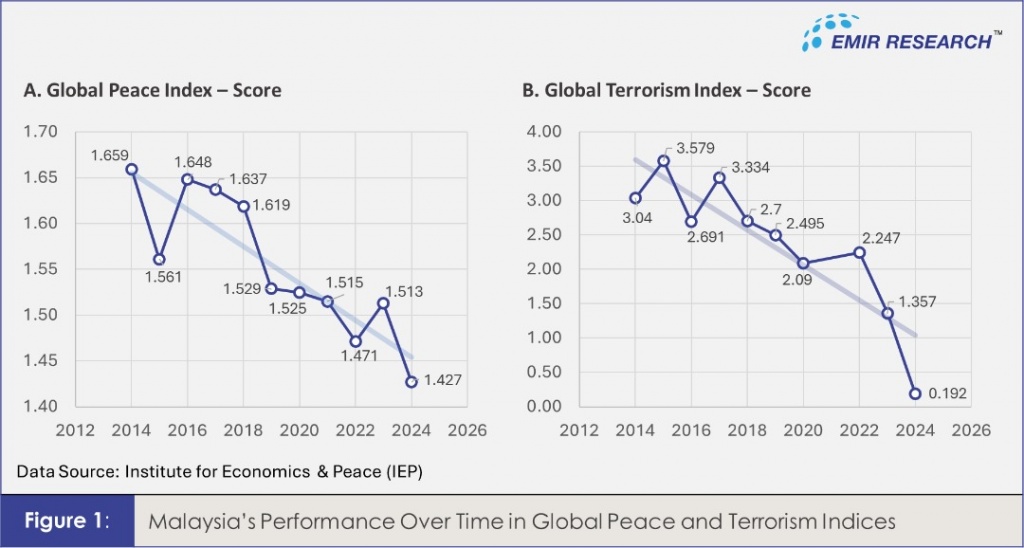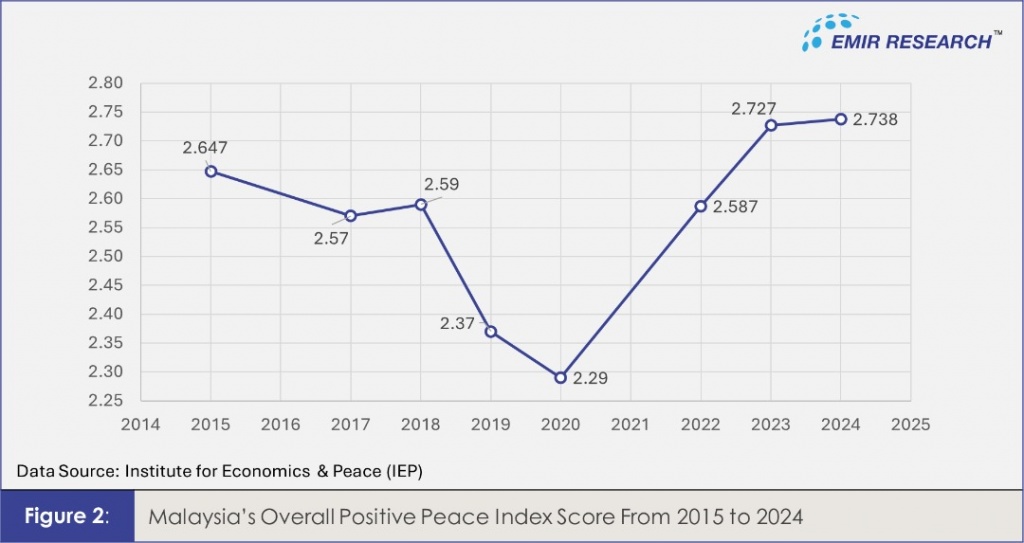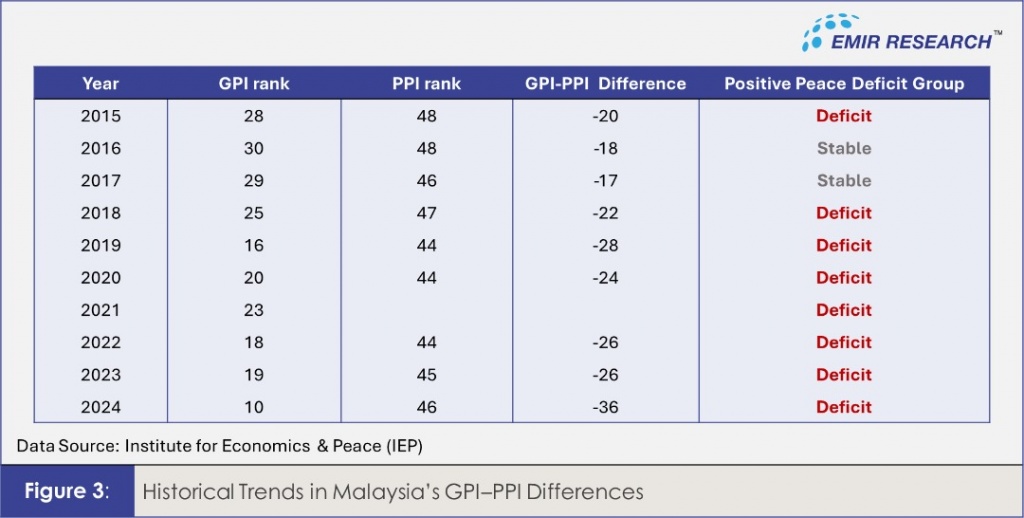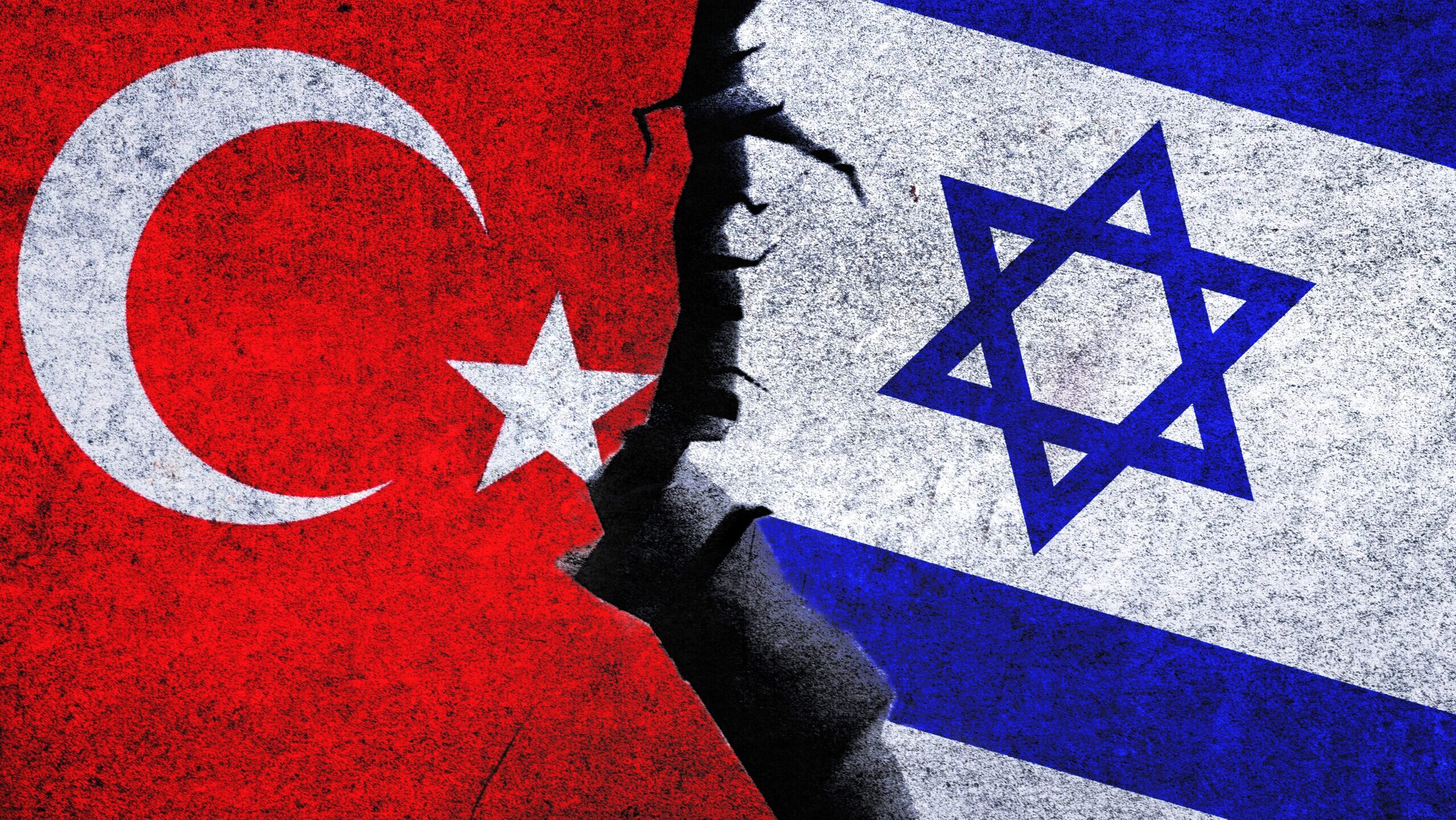
Published by MYsinchew, AstroAwani & BusinessToday, image by BusinessToday.
Reflecting on the tumultuous events of 2024, the year was marked by significant global turmoil and instability. The Middle East conflict showed no sign of abating. In Bangladesh, the former prime minister was ousted amid violent clashes between youth protesters and the police. Meanwhile, Myanmar has remained engulfed in civil war since the 2021 coup d’état. China’s escalating assertiveness in the Taiwan Strait and the South China Sea heightened uneasy among regional and global stakeholders. Additionally, South Korean President Yoon Suk-yeol was impeached after declaring martial law, seen as an attempted self-coup. These events collectively underscore a year of profound geopolitical challenges and shifting power dynamics on the global stage.
In contrast, Malaysia remains relatively peaceful, with external conflicts limited to overlapping territorial claims in the South China Sea.
According to the Global Peace Index (GPI) by the Institute for Economics & Peace (IEP), Malaysia ranked as the 10th most peaceful country in 2024, scoring 1.427 (lower scores indicate greater peace). This achievement is highlighted in the newly launched MyPCVE.
However, this ranking raises the question of whether it truly reflects Malaysia’s proactive efforts in Preventing and Countering Violent Extremism (P/CVE) or simply mirrors the region’s relative stability. Historical GPI map visualizations show that the ASEAN region has remained predominantly peaceful, except for Myanmar.
Furthermore, the GPI 2024 report offers little to no mention of Malaysia, possibly underscoring the nation’s inherent tranquillity.
Beyond ranking among the top 10 in GPI 2024, Malaysia’s position and score have steadily improved over the past decade. Notably, the 2024 evaluation shows a significant improvement compared to previous years.
Our overall GPI score decreased from 1.659 in 2014 to 1.427 in 2024, marking our lowest score to date (Figure 1.A). Across the three domains and 23 indicators, we attained the minimum possible score of 1 in “On-going Domestic and International Conflict,” 1.229 in “Militarisation” (our third-lowest in a decade), and 1.818 in “Societal Safety and Security,” the lowest in the past ten years.
It is important to note that the GPI 2024 evaluations primarily use historical data, mainly from 2023 and earlier. For example, the “Level of Perceived Criminality in Society” indicator uses 2023 data, while the “Level of Violent Crime” indicator covers March 2023 to March 2024.

Conversely, the “Impact of Terrorism” indicator in the Global Terrorism Index (GTI) covers 2019 to 2024, with the latest edition published in February 2024.
Malaysia’s GTI score, also published by the IEP, has significantly improved from 3.04 in GTI 2014 to 0.192 in GTI 2024 (lower scores indicate better performance) (Figure 1.B).
The IEP has identified a strong correlation between the GTI and GPI, where countries with lower GPI scores (indicating higher peace levels) typically score lower on the GTI (reflecting a reduced terrorism impact). For Malaysia, this relationship is significant and logical, as the GTI is a component of the GPI, and decreased terrorist activities generally signify a more peaceful society.
However, the absence of visible violence should not lead to complacency. While declining violence levels are commendable, the critical question is the sustainability of this improvement. Can Malaysia maintain its peace in an increasingly chaotic world?
The answer may lie in another report published by IEP: the Positive Peace Report (PPR). The PPR assesses a country’s positive peace—the attitudes, institutions, and structures that create and sustain a peaceful society. Unlike the GPI and GTI, which measure the absence of violence and terrorism, the PPR evaluates a country’s capacity to foster resilience against radicalisation and violence and its ability to maintain peaceful conditions in the future.
Regarding our PPR performance, it diverges from the GPI and GTI trends. Malaysia’s Positive Peace Index (PPI) score fluctuated until a significant improvement in 2019. However, since then it rose to a historical high of 2.738, indicating reduced resilience against violence (Figure 2).

To address significant disparities where a country’s GPI-measured peace outpaces its PPI level, the IEP has developed a new classification system, categorising countries into three groups:
- Positive Peace Deficit: Countries with GPI ranking at least 20 places higher than their PPI, lacking elements of positive peace despite no active conflict or violence.
- Positive Peace Surplus: Countries with GPI ranking is at least 20 places lower than their PPI, maintaining negative peace—the absence of direct violence or conflict—and possessing abundant elements of sustainable positive peace.
- Stable Countries: Countries with GPI and PPI ranking differences within 20 places, balancing negative and positive peace elements without significant deficits nor surpluses.
Essentially, a nation may appear peaceful externally but lack the critical structures to sustain peace during stress or upheaval.
The Positive Peace Deficit metric effectively predicts global conflicts. IEP’s analysis found that 90% of countries with the highest Positive Peace deficits in 2009 experienced significant peace declines in the subsequent years,with internal peace scores dropping by 11% from 2009 to 2023, compared to a global average decline of 4%.
As for Malaysia, since 2015, it has consistently been in the Positive Peace Deficit category, with its deficit widening over time (Figure 3). Exceptions occurred in 2016 and 2017, when the GPI rankings exceeded the PPI by only 18 and 17, respectively.

Despite maintaining a Positive Peace Deficit for nearly a decade, Malaysia has significantly improved its GPI scores, which theoretically should have been adversely affected. This contradicts the IEP’s prediction that a high Positive Peace Deficit leads to lower Internal Peace Scores, especially since Internal Peace indicators account for 60% of the GPI.
This inconsistency requires critical examination. One possibility is that the deficit, though dangerously increasing, hasn’t yet reached a threshold to start impacting internal peace. Alternatively, certain factors (GPI Internal Peace indicators)—such as homicide rates, incarceration rates, and access to small arms—may be underreported, preventing a decline in Internal Peace scores.
Further investigation into these areas is essential to comprehensively understanding the dynamics behind Malaysia’s unexpected improvements in GPI scores despite the ongoing Positive Peace Deficit. This ensures the broader context is not overlooked.
Moreover, the declining PPI score, as a better measure of societal resilience against radicalisation, violent extremism, and terrorism, warrants significant concern and should be the primary focus of MyPCVE initiatives and beyond. Positive peace encompasses more than the absence of conflict; it includes social justice, equality, robust institutions, effective governance, economic stability, environmental sustainability, and harmonious citizen relationships.
Failure to address these issues may result in the persistent Positive Peace Deficit and deteriorating PPI catching up with Malaysia.
In 2024, the nation witnesses multiple violent crimes resembling terror attacks, including Molotov cocktail attacks on convenience stores, threats and assaults against governing party politicians, and a death threat against lawyer Nik Elin Zurina Nik Abdul Rashid for challenging the constitutionality of 16 Kelantan Syariah criminal provisions. These cases remain unsolved in the public domain.
Additionally, the fatal attack of Ulu Tiram police station by a Jemaah Islamiyah follower, a designated terrorist organisation in Malaysia, underscores the escalating threat. Following this incident, counter-terrorism authorities arrested over 20 suspected ISIS supporters in June 2024 (Malaysiakini, 2024).
As the global pivot towards the Indo-Pacific is poised to usher in heightened regional competition for resources and, hence, increased risks of violent extremism and terrorism, the intensifying power struggle and rising global extremism underscores the urgent need for proactive preventive measures over ineffective reactive approaches.
Chia Chu Hang is a Research Assistant at EMIR Research, an independent think tank focused on strategic policy recommendations based on rigorous research.

